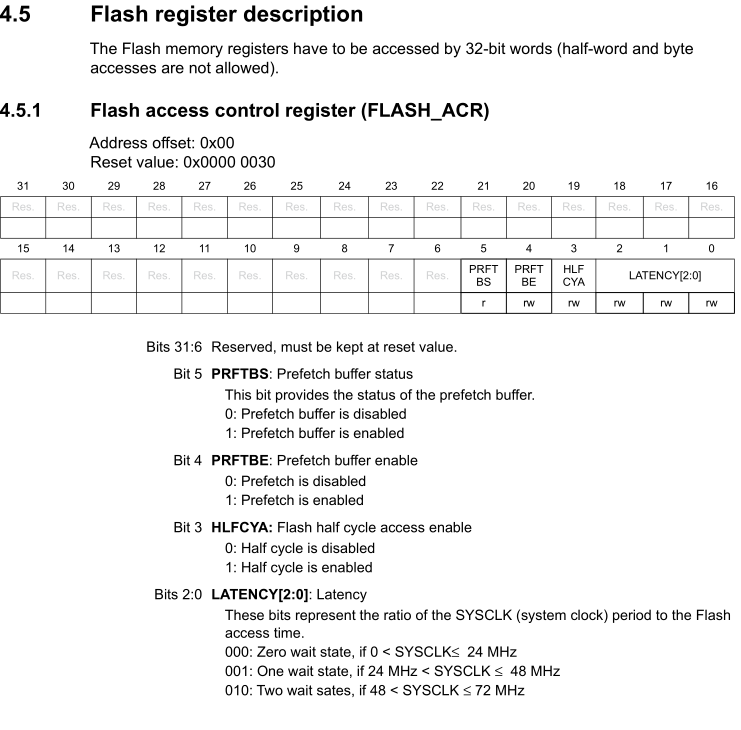I have put all clock configuration to its default state, so an internal oscillator is running at 8 mhz. I have a delay loop using inline assembly as follows:
// Delay a certain number of cycles using glorious inline assembly.
void delay(uint32_t time) {
asm volatile(
"mov r4, #3 \n" // Divide time by three since the loop is
"udiv %[time], %[time], r4 \n" // 3x too slow.
"loop: \n"
"subs %[time], %[time], #1 \n" // 1 cycle
"bne loop \n" // 1 cycle if not take, 2 if taken.
: [time] "+l" (time) // Put rw input variable time in r0..r7.
// Make it rw and as output so we don't clobber
: // Time is both input and output.
: "r4", "cc" // We are clobbering r4 and condition code flags.
);
}
and a GPIO routine as follows:
// Blink the led with a period of 1 second.
while (1) {
// Set LED pin.
GPIOA_BSRR = 1 << LED_PIN;
delay(second_cycles / 2);
// Reset LED pin
GPIOA_BSRR = 1 << (LED_PIN + 16);
delay(second_cycles / 2);
}
When running without wait states everything is fine and performing as expected. But when I change the wait states for flash from 0 to 1, my loop takes 833 milliseconds instead of 500 milliseconds, or a 66% loss in performance roughly.
When I use GDB to debug, I can see the FLASH_ACR register has the contents of 0b0011 0000 which signify that the prefetch buffer is both enabled and has a status of enabled, with 0 wait states for flash. Plus, the prefetch buffer should be enabled on reset as per the datasheet. When I write to the register by or'ing it with 0b001 I get the expected result of 0b0011 0001 back after reading from it again. This is done doing the following:
// Change the flash wait states to 1.
volatile uint32_t foo1 = FLASH_ACR;
FLASH_ACR = FLASH_ACR | (0b001 << 0);
volatile uint32_t foo2 = FLASH_ACR;
Interestingly enough, enabling or disabling the prefetch buffer with a 1 wait state makes no difference in my loop, which doesn't seem to make sense.
And here is the relevant section of the datasheet
I am using an NUCLEO-F303RE board, which uses an STM32F103RE.
